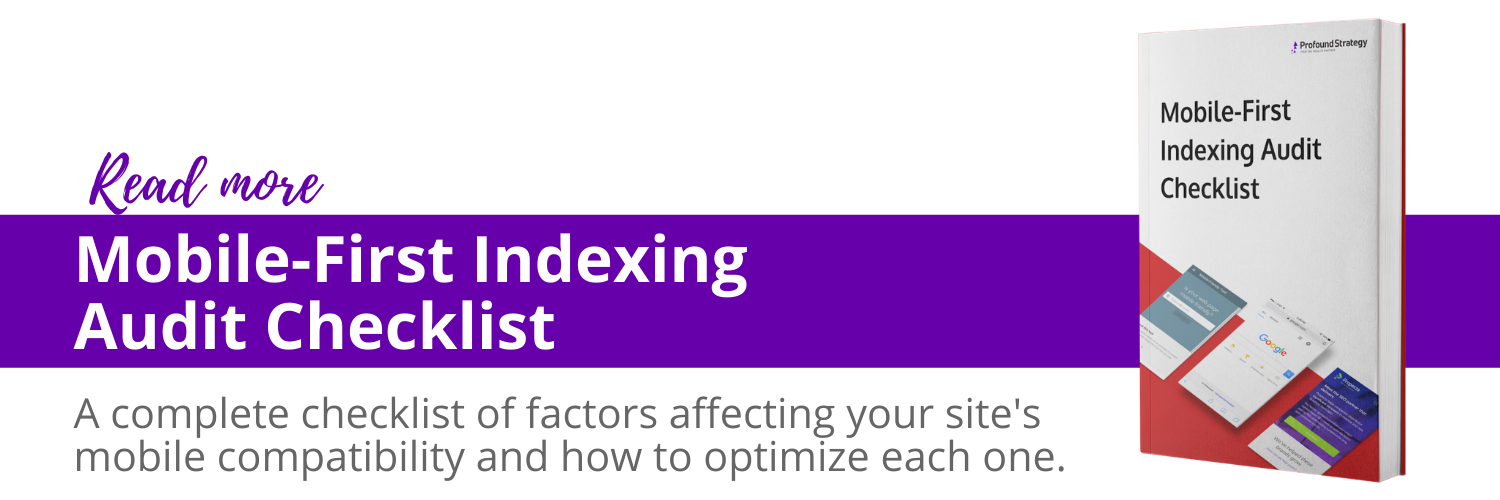Technical SEO: A Decision-Maker’s Guide to the 5 Issues that Matter
Technical SEO is a foreign language to many marketers, and for good reason. It’s a specialized technical discipline that has evolved dramatically in recent years.
What technical SEO work is still important? How do you know if a particular ticket is worth the resources your analysts need to spend on it? And how does one prioritize an onslaught of technical SEO recommendations couched in difficult to understand technical jargon?
Technical SEO factors form an important foundation to a website’s ability to earn organic search traffic. It can make or break an SEO campaign—or even existing traffic sources—resulting in significant revenue growth or loss.
But the average technical audit is still full of “needs” and “errors” that won’t affect UX, rankings, or organic traffic. There are 100s of factors that could be considered, but many only have a trivial (or nonexistent) impact on traffic. Only five technical SEO considerations are always critical and always require immediate attention.
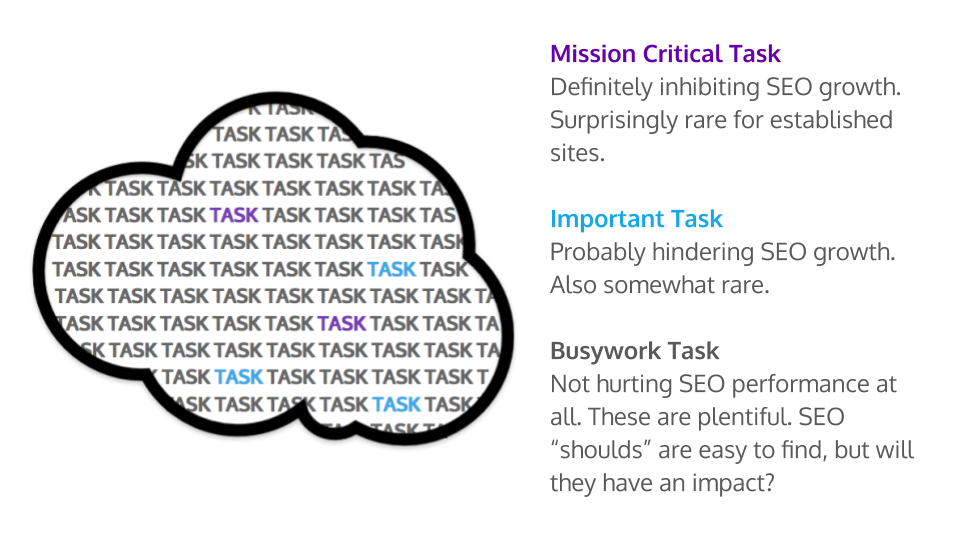
Looking for a customized, professional technical SEO audit? Our audits are unique in the industry for being manually completed and aggressively prioritized based on revenue-impact.
Learn more about a technical SEO audit
How to Evaluate Any Technical SEO Task
Many marketing decision-makers are frequently faced with the task of evaluating an SEO audit (usually including a list of technical SEO “errors”), approving tickets for technical SEO work, or signing off on budgets and requests for technical SEO resources.
The good news is you don’t have to speak fluent SEO in order to properly evaluate which tasks are worth your resources. In addition to the five mission critical areas outlined below, you can cut right to the value of technical SEO work by asking two questions:
- What will happen to organic traffic if we do / ignore this?
- Can you demonstrate multiples times this work directly led to traffic improvements in the past?
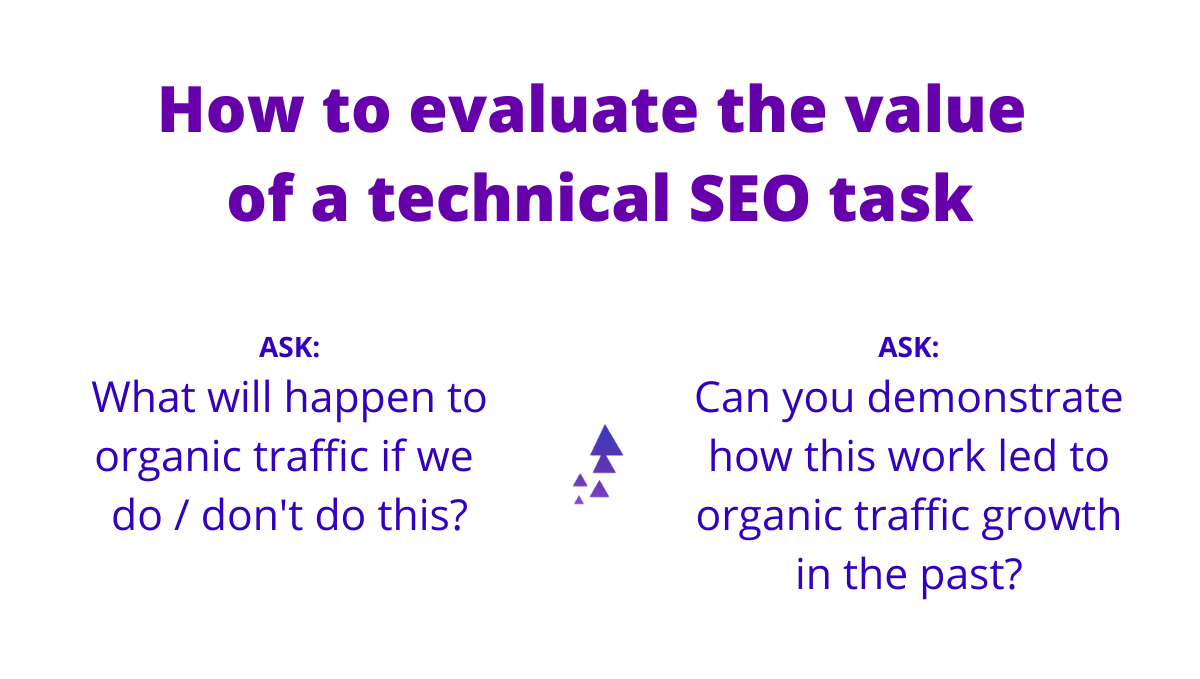
These questions can be posed to internal analysts or to an SEO consultant or agency. Ask for specific examples, and ask directly about traffic growth—not rankings, not SEO “best practices,” and not ideas or hunches.
Important technical SEO work is easily defended and explained—even in layman’s terms. You may also find that some recommendations and tickets disappear when analysts realize they can’t connect the work to measurable business value. You just saved yourself some resources.
A Technical SEO Checklist: 5 Mission Critical Items
None of these items will be new or unfamiliar to an SEO analyst. That’s because the revenue-focused technical analyst isn’t inventing new work, he or she has simply learned to prioritize the tasks that are necessary for SEO growth.
1. Crawlability Issues
Any technical issue that prevents search engine crawlers from accessing a site is mission-critical. If Google can’t crawl a site, it can’t rank the site.
The most common crawlability issues come from:
robots.txt files — A robots.txt file is created for the domain as a whole and hosted on the site to tell search engine crawlers which pages to crawl, or—most often—which pages not to crawl. These are frequently used to tell Google not to waste time on archives or auto-generated pages, but it is sometimes misconfigured to tell crawlers to ignore the entire site.
Meta robots tags — These are lines of code used on individual pages that tell robots not to index a specific page. Sometimes, a site’s CSS is misconfigured to put a meta robots tag on every page.
CMS settings — If the site is on WordPress, for example, it may be accidentally set to discourage search engines from crawling it. Check this setting in Settings → Reading → Search Engine Visibility. Other CMS’s may have similar settings.
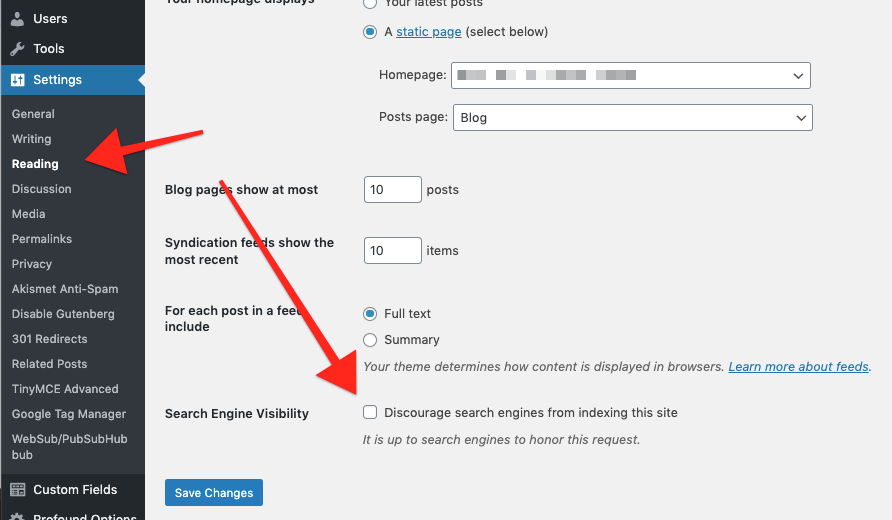
2. Significant Site Speed Problems
A slow site can cause problems in two ways: If it’s really slow, Google may give up trying to index it. If it’s just too slow for users, poor engagement metrics will keep it from performing well in search.
If the site takes 15 or more seconds to fully load, you’ve got a mission critical issue to deal with. GTMetrix is a great tool to use for checking site speed. When using GTMetrix load time, every site should target 10 seconds or less.

Improving beyond 10 seconds for a load time, won’t create SEO growth. There’s really no magic number, and Google’s only advice is that sites should load, “reasonably fast.”
To clarify on the mobile speed update: a) this only affects the slowest sites, b) those can incrementally improve (though ideally you’d significantly improve the speed…), c) we’re still aiming for this month. If your site is reasonably fast, tweaking won’t change things. https://t.co/4glNAFd0ww
— 🍌 John 🍌 (@JohnMu) July 3, 2018
A full render in five to 10 seconds usually means that pieces of the site appear, and can be engaged with, in two or three seconds, and is fine. If the site loads in 10 seconds or less, we have found that further improvements don’t really impact SEO performance.
3. Significant Mobile Usability Issues
Google uses a mobile-first ranking algorithm, which means that it primarily considers how a site performs on mobile devices—even for rankings on desktop views.
Any technical issue that hinders mobile performance will directly impact SEO ranking across the board, and should be dealt with immediately.
Common mobile usability issues include:
- Text that is too small.
- Clickable elements (links and buttons) that are too close together for the average thumb.
- Content that is wider than the screen. (Users don’t like to scroll right to left.)
Mobile usability issues are usually reported through Search Console. Take them seriously if they appear.
4. Broken or Severely Outdated UX
In addition to mobile usability issues, any kind of broken, poor, or outdated user experience is guaranteed to have a detrimental effect on a site’s SEO performance. Any number of structural or design considerations can cause a poor UX:
- Complicated navigation structure
- Broken links
- Missing images
- Broken forms
- Poorly formatted text
- Too much Flash
Additionally, ugly or outdated design erodes trust with many users. Visuals and design elements that are dated and old fashioned frequently decrease engagement.
Poor UX is measured by engagement metrics like bounce rate, dwell time, and pages-per-session. Search engines can tell that users aren’t favoring these sites, which leads to diminishing rankings.

5. Manual Actions Against the Site
When Google’s robots find a significant issue with a site, Google may flag the site for manual review. If a reviewer checks the site and agrees that there’s a problem, the page or site will be demoted in search results—or removed altogether.
Manual action is taken against websites for problems like:
- Lots of spam comments or forum posts
- Manipulating structured data
- Unnatural, spammy links to or from the site
- Lots of thin or duplicated content
- Keyword stuffing
Google will inform the site owner of the manual action via Search Console, and these must be fixed immediately. A manual action report is not a warning, it is a notice that the site has been demoted in organic search. This requires immediate attention.
Additional Technical SEO Priorities: Site Launch Needs
In addition to maintaining regular site health, a site migration or launch is a time for extra diligence.
Many marketers assume that a loss of organic traffic is inevitable during a site migration. Not only is this inaccurate, it’s dangerous to the future of the website. A site that launches with technical errors will lose rankings and traffic, and they are not easily recovered.
A site migration or launch needs to be technically perfect, and it is possible:
- QA the site extensively and complete a technical SEO audit before launch.
- Map 301 redirects from old URLs to the content’s new URL. QA redirects prior to launch, and launch redirects immediately at the time of a launch.
- QA the site, and your 301s, thoroughly after launch.
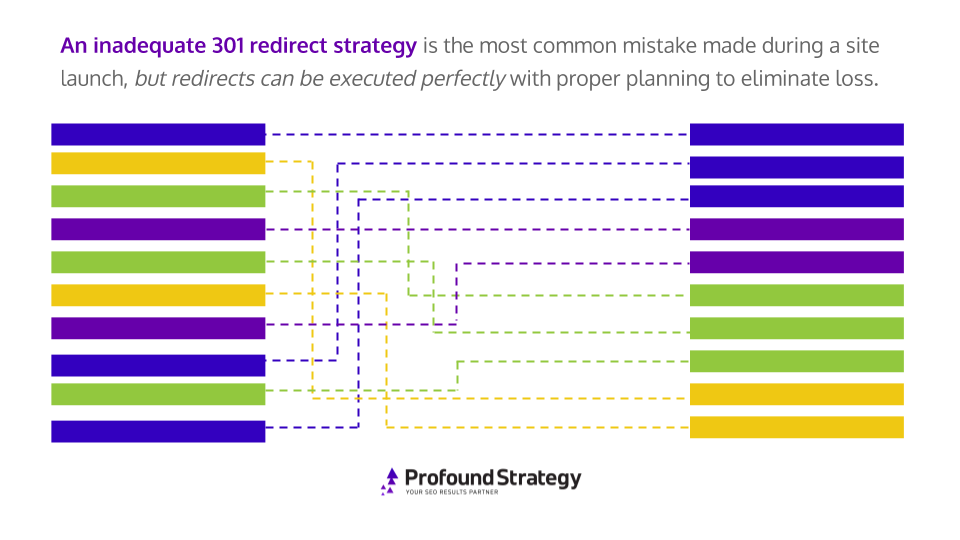
If redirects are not in place or navigation elements are broken, etc., when a site launches, engagement will drop, rankings will decline, and organic traffic will plummet.
If traffic is lost during a launch, getting that traffic back is almost impossible. The web dev team can jump in almost immediately to implement redirects or fix broken links, but Google isn’t waiting. There are hundreds—if not thousands—of other pages for Google to choose from, for page one. The algorithm will not check back in a week and restore top rankings if problems are fixed. Google moves on.
Do you have a site migration or launch coming up? Let Profound Strategy’s experienced team help ensure a no-loss migration. Our team of technical analysts has successfully migrated sites of all sizes without any negative SEO impact, and we can help your site launch be successful as well. →
Effective Technical SEO Starts with a Complete Audit
It’s true that technical SEO isn’t the SEO growth driver that it used to be, but there is still a foundational baseline that needs to be established and consistently maintained in order for organic growth efforts to be successful.
In addition to the five areas that are almost always mission critical, remember that you can easily evaluate any technical “need” by asking an analyst or agency to explain and prove the impact on organic traffic.
But don’t wait for problems to surface on their own. The best place to start is with a thorough, holistic technical SEO audit. With a clear picture of the entire site, you can make informed, revenue-focused decisions about how to spend your SEO resources.
Profound Strategy’s technical SEO audit is unique in the industry, precisely because our team is experienced and aggressively focused on ROI. Our technical SEO audit is a manual review of more than 100 items, by experienced technical SEO analysts, using a variety of top SEO tools. The final report is manually prioritized by business impact: identifying which tasks are mission critical, which are important, and which are a waste of resources.
Learn more about a technical SEO audit
What's Next?
Profound Strategy is on a mission to help growth-minded marketers turn SEO back into a source of predictable, reliable, scalable business results.
Start winning in organic search and turn SEO into your most efficient marketing channel. Subscribe to updates and join the 6,000+ marketing executives and founders that are changing the way they do SEO:
And dig deeper with some of our best content, such as The CMO’s Guide to Modern SEO, Technical SEO: A Decision Maker’s Guide, and A Modern Framework for SEO Work that Matters.
